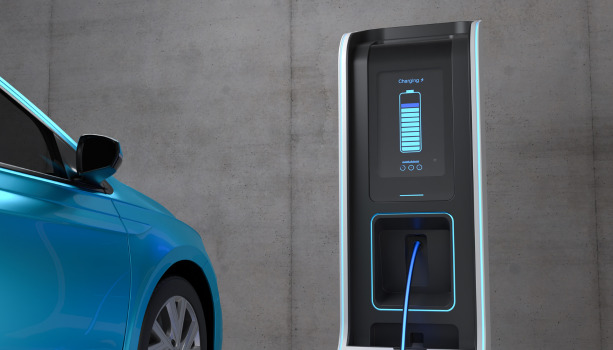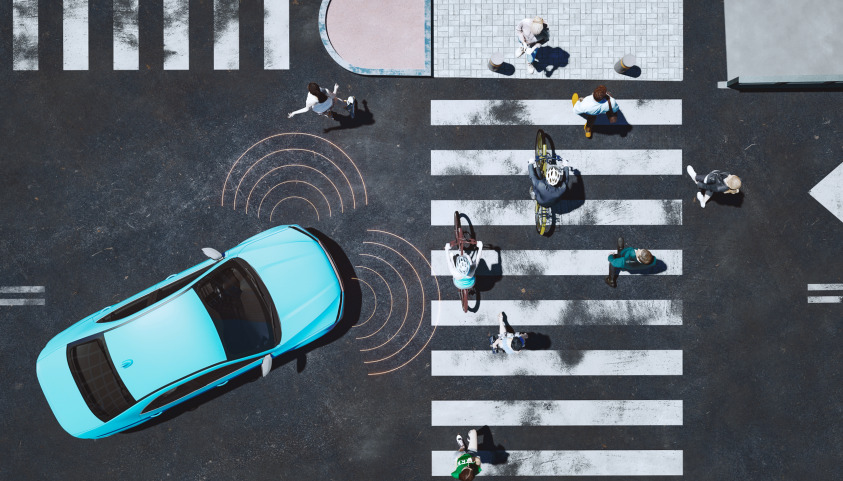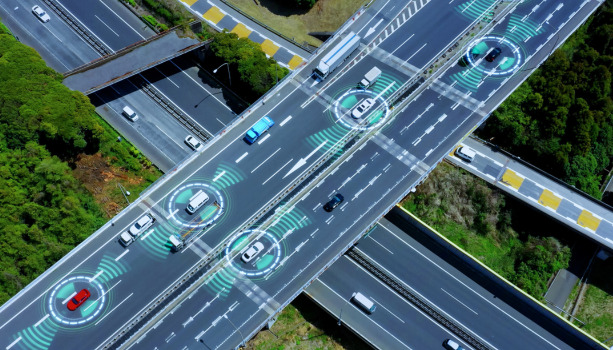In this blog, Vice President of Autocrypt North America, Martin Totev, takes us to OmniAir Consortium’s Costa del Sol Plugfest in Malaga, Spain, held between October 24 and 28, where AUTOCRYPT provided its SCMS certificates for the testing environment.
Interoperability Across the V2X Ecosystem
Cooperative Intelligent Transport Systems (C-ITS) are making road mobility increasingly connected and adaptive, linking vehicles with road infrastructures and pedestrians, and enabling them to cooperate with one another in real-time through V2X (vehicle-to-everything) communications. Yet, although the idea might seem straightforward, industry players and regulators have been putting tremendous effort into establishing V2X interoperability, ensuring that vehicles, smart devices, and infrastructures built by different manufacturers across various domains can seamlessly communicate with each other.
How is interoperability established? At the baseline, all manufacturers must follow a set of standards and protocols for each relevant use case. These protocols are often established by regulators and industry associations. For instance, the two major technical protocols for V2X communications include WAVE (Wireless Access in Vehicular Environments) by IEEE and C-V2X (cellular V2X) by 5GAA. As such, manufacturers of onboard units (OBU) and roadside units (RSU) need to ensure that all their end-entities within a V2X environment comply with the same protocol to enable reliable message transmission.
Similarly, the technical standard for electric vehicle charging is outlined in ISO 15118, which defines the architecture for Plug&Charge (PnC) and V2G (vehicle-to-grid) bidirectional charging, providing a set of consistent specifications and guidelines for OEMs, charger manufacturers, and charge point operators (CPO) to promote a seamless EV charging ecosystem.
Why Protocols Aren’t Enough: The Need for V2X Interoperability Testing
Simply because two manufacturers follow the same standard or protocol, it doesn’t necessarily guarantee that their devices will be perfectly compatible with each other under actual implementation. As a simplified example, the standard for a universal plug may specify the width but lacks specification on the length, resulting in plugs with different lengths being incompatible despite adhering to the same standard. In practice, incompatibility issues can be much more complex, arising from a variety of underlying factors that can be difficult to pinpoint.
Given that the V2X ecosystem involves a wide range of end-entities across different domains, interoperability testing is necessary prior to mass deployment. These tests are usually conducted at a plugtest (or plugfest), which invites all relevant manufacturers to deploy their vehicles and devices in combined scenarios.
OmniAir Plugfest
OmniAir Consortium is one of the most influential associations in the C-ITS industry. It specializes in promoting interoperability between different connected entities within the V2X ecosystem, including the vehicle itself, onboard units (OBU) and roadside units (RSU), embedded communication modules, and security modules and SCMS backends.
OmniAir Consortium regularly organizes interoperability testing events—known as OmniAir Plugfests—to provide a platform for industry participants to test the cross-domain interoperability of their connected mobility technologies and devices. The most recent Costa del Sol Plugfest was held between October 24 and 28 in Malaga, Spain.
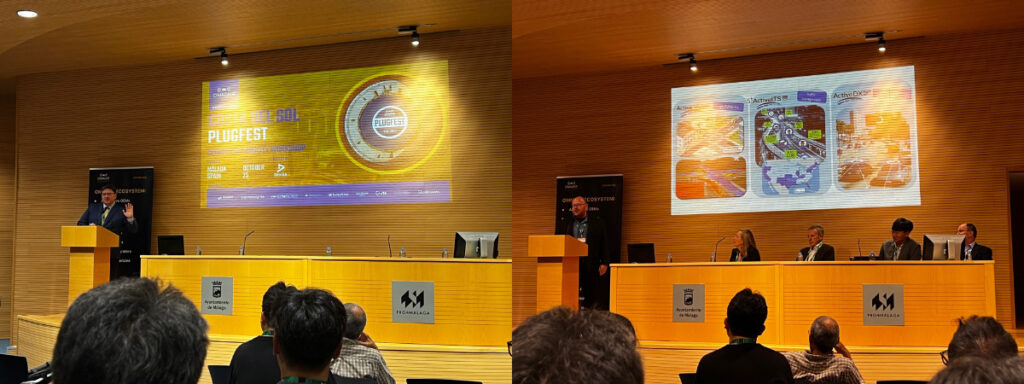
A wide range of bench tests were performed at the Costa del Sol Plugfest, including those involving V2X modules, message encryption, V2X-PKI certificates, SPaT message transmissions, and MAP message transmissions. Specific use cases like red light violation warning, emergency vehicle preemption, lane closure warning, curve speed warning, and many more, were tested on the field. One of the industry’s major testing and inspection firms, DEKRA, provided its testbed for the event.
As one of the more than 60 associate members of the OmniAir Consortium, and a C-ITS cybersecurity provider specialized in securing V2X connections, the AUTOCRYPT team headed to Malaga to participate in the plugfest by providing AUTOCRYPT’s SCMS certificates to the devices tested at the event.
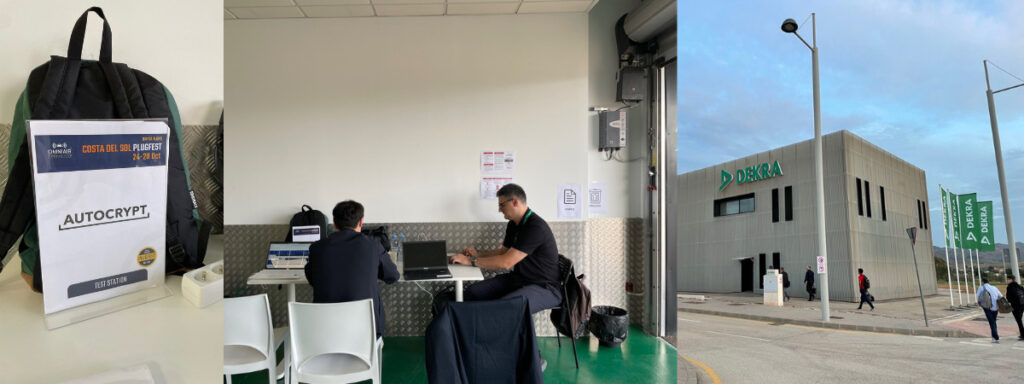
Is C-V2X Ready?
Vice President of Autocrypt North America, Martin Totev, presented at a panel session discussing whether C-V2X is ready to be deployed for commercial use. Martin expressed his optimism on C-V2X commercialization and stressed a step-by-step deployment approach. “It doesn’t need to be mass deployment and autonomous driving straight away,” said Martin. “We can begin by deploying them in vehicles first, then intersections with frequent accidents, gradually enhancing road safety and saving lives in the long run.”
Martin also pointed out the importance of cybersecurity in V2X. “Although interoperability testing is crucial, it only marks the beginning of a continuous improvement process. In fact, more commercial deployments are needed so that security and SCMS providers like AUTOCRYPT can continuously enhance its regional security policies and strengthen its definitions for misbehaviours.”
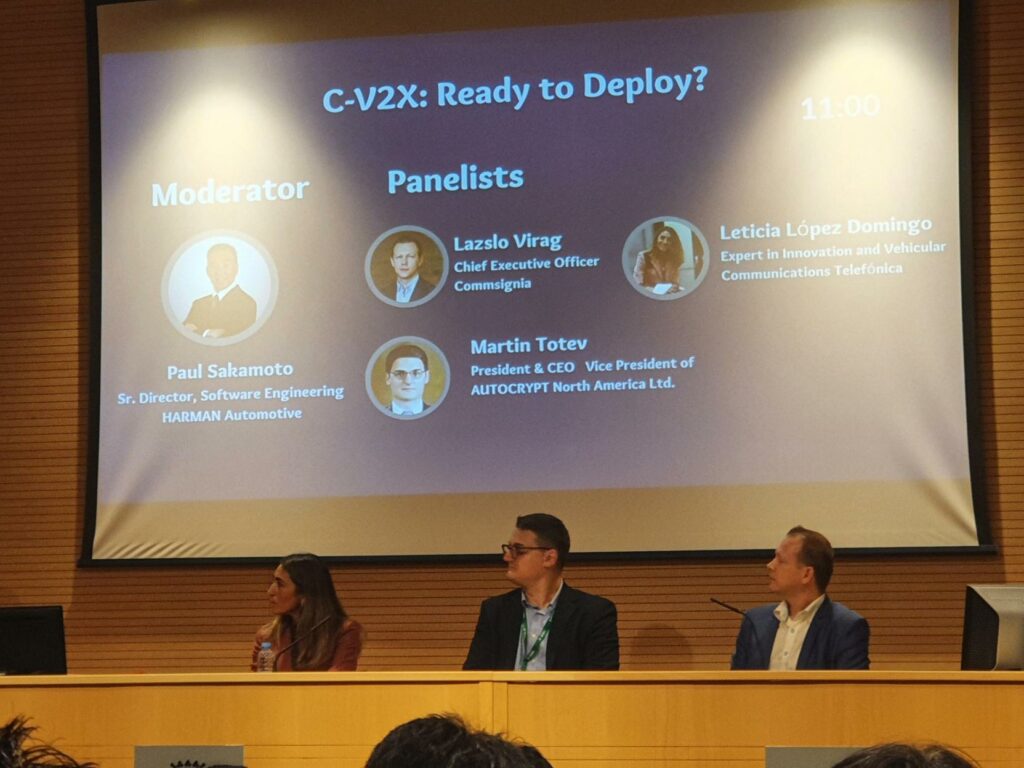
AUTOCRYPT’s Pivotal Role in the V2X Ecosystem
AUTOCRYPT specializes in securing V2X communications. Given that vehicles rely on V2X messages for judgment and decision-making, the validity of these messages is critical to the safety and functionality of cooperative autonomous driving.
AUTOCRYPT secures V2X communications using both encryption and authentication technologies. On the frontend, a security module is embedded into each end-entity to encrypt and decrypt messages by referring to a list of SCMS certificates stored in a Local Certificate Manager (LCM). At the backend, its SCMS architecture enables the proper issuance, revocation, and verification of certificates, ensuring message validity and privacy.
To learn more about AUTOCRYPT’s V2X security solutions, contact global@autocrypt.io.
To stay informed and updated on the latest news about AUTOCRYPT and mobility tech, subscribe to AUTOCRYPT’s quarterly newsletter.
